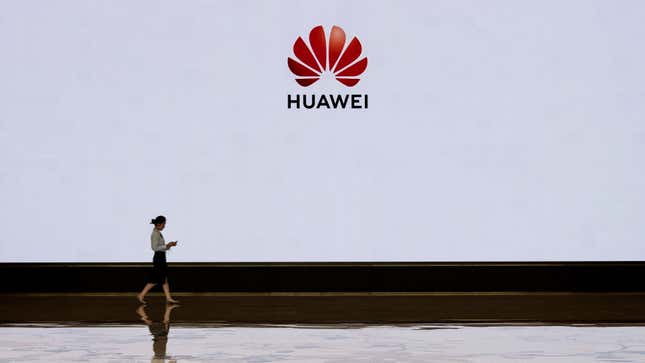
What exactly is happening with Huawei right now?
You could be forgiven if you feel like you’ve lost the plot. The Chinese tech giant has been an important but difficult-to-track chess piece in the increasingly tense rivalry between Beijing and Washington. In one moment, it’s a potent enemy spying on us, and there’s no compromise in sight. In the next, it’s a trade piece worth bargaining.
Pivoting drastically and without any explanation, President Donald Trump announced this weekend that American companies would be allowed to sell software and hardware components to Huawei, effectively reversing U.S. policy on the matter. The announcement came following a G20 summit meeting in Japan on Saturday where Trump and Chinese President Xi Jinping agreed to pause new tariffs and continue trade negotiations.
It’s a step away from conflict that’s been escalating and occasionally swerving virtually ever since Trump entered the White House.
The decision to reverse on the Huawei ban first instituted in May—after Trump called the company “dangerous”—drove some marquee Republicans to criticize the administration. Here’s Florida Senator Marco Rubio on Twitter calling the move a “catastrophic mistake” and promising congressional action.
Other Republicans including Florida Senator Rick Scott and Tennessee Senator Marsha Blackburn joined in the criticism of Trump’s move.
Huawei, on the other hand, was pleased. On an official Twitter account, the company posted: “U-turn? Donald Trump suggests he would allow #Huawei to once again purchase U.S. technology!”
Feeling deja vu? We’ve been here before. Last year, Trump banned business with the Chinese telecom company ZTE, and Rubio cheered as both cited persistent national security threats originating from Beijing. Trump then reversed course and Rubio, saying the U.S. got played, called for congressional action.
You’re probably wondering now what changed regarding Huawei. Why signal danger and then reverse course? And really, what exactly has changed? Is everything back to the way it was before the trade war commenced?
After a vague press conference from the American president and some opaque notes in Chinese state-controlled press, no one is really clear. Trump did, however, say that the deal was regarding “equipment where there’s not a great national security problem with it.”
Appearing on Fox News on Sunday, White House adviser Larry Kudlow said American businesses can sell to Huawei as long as the sale is not a national security threat. Kudlow said the Commerce Department would look to grant “some temporary licenses” to American firms to sell to Huawei.
This vagueness leaves unanswered whether Google can still provide its Android operating system to Huawei phones or whether Microsoft can license Windows to Huawei laptops—although a Microsoft spokesperson told CNBC that it would “continue to offer Microsoft software updates to customers with Huawei devices.”
Both U.S. and Chinese firms have talked publicly about their business suffering due to the geopolitical conflict between the two countries. Chinese chipmakers have said they wouldn’t hit Chinese national targets as a result of the trade war while American tech companies have been pushing the White House to end the fight so they can continue selling to China.
“I said, that’s okay, that we will keep selling that product, these are American companies that make these products. That’s very complex, by the way,” Trump said, according to Bloomberg. “I’ve agreed to allow them to continue to sell that product so that American companies will continue.”
Several American companies, including Intel and Micron, had already resumed sales to Huawei three weeks ago despite the lack of a clear and public deal on the matter.